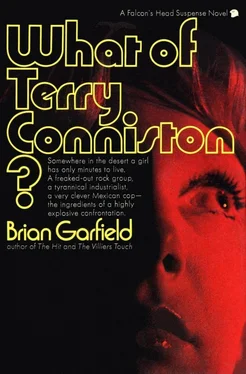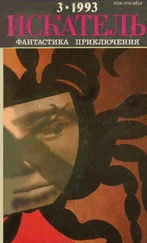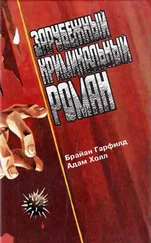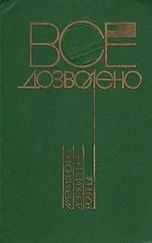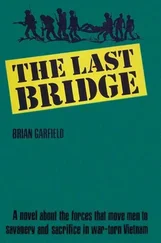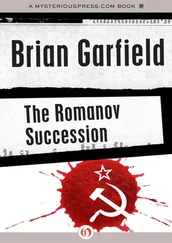Брайан Гарфилд - What of Terry Conniston?
Здесь есть возможность читать онлайн «Брайан Гарфилд - What of Terry Conniston?» весь текст электронной книги совершенно бесплатно (целиком полную версию без сокращений). В некоторых случаях можно слушать аудио, скачать через торрент в формате fb2 и присутствует краткое содержание. Город: New York, Год выпуска: 1971, Издательство: World Publishing, Жанр: Криминальный детектив, thriller_psychology, на английском языке. Описание произведения, (предисловие) а так же отзывы посетителей доступны на портале библиотеки ЛибКат.
- Название:What of Terry Conniston?
- Автор:
- Издательство:World Publishing
- Жанр:
- Год:1971
- Город:New York
- ISBN:нет данных
- Рейтинг книги:3 / 5. Голосов: 1
-
Избранное:Добавить в избранное
- Отзывы:
-
Ваша оценка:
- 60
- 1
- 2
- 3
- 4
- 5
What of Terry Conniston?: краткое содержание, описание и аннотация
Предлагаем к чтению аннотацию, описание, краткое содержание или предисловие (зависит от того, что написал сам автор книги «What of Terry Conniston?»). Если вы не нашли необходимую информацию о книге — напишите в комментариях, мы постараемся отыскать её.
A freaked-out rock group, a tyrannical industrialist, a very clever Mexican cop — the ingredients of a highly explosive confrontation.
What of Terry Conniston? — читать онлайн бесплатно полную книгу (весь текст) целиком
Ниже представлен текст книги, разбитый по страницам. Система сохранения места последней прочитанной страницы, позволяет с удобством читать онлайн бесплатно книгу «What of Terry Conniston?», без необходимости каждый раз заново искать на чём Вы остановились. Поставьте закладку, и сможете в любой момент перейти на страницу, на которой закончили чтение.
Интервал:
Закладка:
When they approached the main-traveled road he eased the speed to sixty-five. Cars began to appear — station wagons and dusty Cadillacs and rattletrap pickup trucks. He averted his face as they passed. He took the left turn into the wide highway, enjoyed the way the little car cornered, and was taken by surprise — because he wasn’t used to small-car driving — when an onrushing Greyhound bus went by in the opposite direction and rocked the sports car in its wake of hissing wind.
Approaching Nogales he obeyed the speed-limit signs, which brought him down to fifty, then thirty-five; driving the high hillside bend with rocks above on the right and the Santa Cruz river below on his left, he said to Terry, “Have you got any money in your bag?”
“I did. Unless somebody went through it while we were back there.”
He was hoping nobody had. She pawed through her handbag, took out a red leather purse-wallet and snapped it open. “It’s still here. What do you know.”
“How much?”
“More than you might think,” she said with a small grin. “My daddy got me in the habit of carrying a lot of cash. Just in case of emergency, he always says — or in case you see something you want to buy and they don’t take credit cards.”
He swung right into a side street that angled between gas stations and warehouses. “How much?”
She was counting, frowning, moving her lips. He glimpsed the edges of twenty-dollar bills. She gave a nervous little laugh and said, “I almost hate to admit it. Almost three hundred dollars.”
“Don’t apologize,” he said grimly.
He bought a $235 Ford from a used-car lot and drove it back to the quiet street where they had parked the little red car. He took everything out of the trunk and packed it away in the Ford. Terry helped him put up the canvas top of the sports car; they couldn’t lock it because they didn’t have a key. There were no No-Parking signs in sight; he judged it would be quite some time before the parked car would draw attention. He shooed Billie Jean and Terry into the Ford and they drove down through town, had to wait ten minutes in the queue of cars at the bottleneck, and went on through the international border with a nod and a smile at the Mexican guards who waved them through, as they waved all cars through. Mitch said, “That part was easy. The rough stuff comes down below. They’ll let anybody into the border towns. It’s when you get out of town on the highway that you’ve got to show your tourist permit. Which we haven’t got.”
Terry said, “I’ve got my passport with me. They’ll accept that.”
“Not for all three of us.”
Thinking on it, he drove on slowly through thick horsefly-crowds of pedestrians — tourists and peddlers. They went past Canal Street, which climbed steeply to the right, a row of whorehouses with girls sitting on the shaded porches. He said uncomfortably, “This is as far as I’ve ever been. Where do we go from here, to get out of town?”
“Down past the bull ring — keep going.” Terry gave him a wry look.
The Ford was an oil-burner. Its radio didn’t work. It needed springs and shock-absorbers and he hesitated to think what else. But at least it ran — and it was clean, for the moment. It would take the cops a long time to trace them through the car. Not that they couldn’t do it, eventually. But eventually, he thought. Eventually... Who the hell knows? He looked at Terry, on the far side of the seat trying to comb the tangles out of her hair. He said, “Where’s the entry station where they check your papers?”
“Four or five miles down the road after we get out of town.”
“What’s the countryside like?”
She had to think about it; finally she said, “Kind of flat and deserty. It’s the other side of these hills.”
“In other words they could see somebody on foot for quite a distance?”
“I’m afraid they could,” she answered, indicating by her reply that she understood what he had in mind. “You’d have a long walk.”
“How long? Five miles? Ten?”
“I don’t know, Mitch. It’s awfully flat to the south of it. Of course it would all depend whether they happened to be looking out in that direction.”
“We can’t take the chance they won’t.” He chewed his lip. The road curled past the high bull ring — a coliseum papered with colorful posters — and ran on south through a widening canyon alongside the railroad tracks. The dark blue car absorbed sun heat through the roof; he drove with all the windows open, his left arm propped up. The traffic was steady and light, mostly old American cars and Volkswagens. The Ford fitted in beautifully.
The last adobe buildings receded behind them and were absorbed in the mirror’s rear-view by the dun-colored hills. The road ran up a long easy grade ahead and disappeared over it. Terry said, “It’s down on the flats beyond this hill.”
He pulled over to the shoulder before they reached the crest; got out and walked up just far enough to be able to see past the crest. From this high vantage-point he could sweep a panorama that sprawled a good many miles toward various mountain ranges, haze-blue in the distance. The road ran down the slope ahead of him two or three miles to a permanent roadblock and a solitary cubical building flying the Mexican flag; beyond, the highway ribboned south for miles before it twisted out of sight.
He pinched his mouth irritably and walked back to the car. “That’s no good. We’ll have to wait for nightfall. Then you drive through the checkpoint while Billie Jean and I walk around the back of the place. We’ll make a wide circle, a mile or so — you’ll have to wait for us on the other side.”
Billie Jean said, “You mean we got to kill the whole day here? It’s too damned hot.”
“We’ll go back to Nogales and get some lunch and some beer.”
“Yeah,” Billie Jean said. “I could use some.”
He made a tight U-turn and drove back the way they had come. Terry’s hand rested on his thigh as he drove.
Chapter Fourteen
Somehow Earle Conniston’s office — which had rarely been occupied by more than two people at a time during Conniston’s reign — had become the center of the household. They had all four congregated there on the night of Earle’s death; it seemed natural that they keep coming back to it.
Halfway through this insomniac night they were gathered in the office — four people in the same room but not together. Carl Oakley was striding back and forth. Louise Conniston sat pushing her ice cubes around with a swizzle stick. Frankie Adams, graven-faced, was twisting his knuckles and chewing on a pencil and frowning at a newspaper crossword puzzle in his lap. Diego Orozco sat in his favorite straight chair with hands on knees, the weight of his huge belly sagging against his thighs.
Louise wore a rustling silk dress. When she twisted in the chair to look at Oakley her breasts handled the cloth seductively. “Why don’t you sit down?”
“I think better on my feet.”
“You’re nervous. You’re making me nervous, so you must be nervous.” Her words ran together carelessly; she was tight, or high — Oakley had never pinned down the distinction.
Frankie Adams said, “What’s the capital of Ecuador? La Paz? Five letters.”
“That’s in Bolivia,” Oakley said absently.
Orozco muttered, “Quito.”
“Yeah. Thanks.”
Oakley tugged back his sleeve and looked at his watch. Two seconds later if someone had asked him the time he wouldn’t have been able to answer. He resumed pacing with his hands in his pockets.
Adams uttered a monosyllabic curse and slapped the pencil down on the newspaper. “I can’t do these damn things.”
Читать дальшеИнтервал:
Закладка:
Похожие книги на «What of Terry Conniston?»
Представляем Вашему вниманию похожие книги на «What of Terry Conniston?» списком для выбора. Мы отобрали схожую по названию и смыслу литературу в надежде предоставить читателям больше вариантов отыскать новые, интересные, ещё непрочитанные произведения.
Обсуждение, отзывы о книге «What of Terry Conniston?» и просто собственные мнения читателей. Оставьте ваши комментарии, напишите, что Вы думаете о произведении, его смысле или главных героях. Укажите что конкретно понравилось, а что нет, и почему Вы так считаете.
